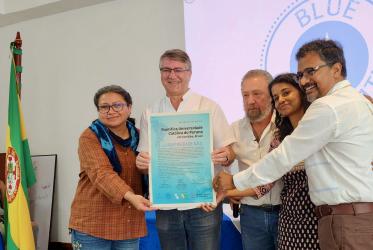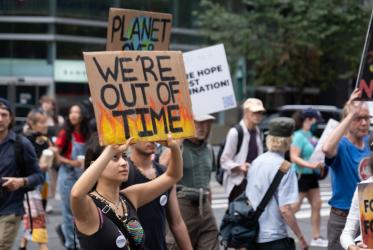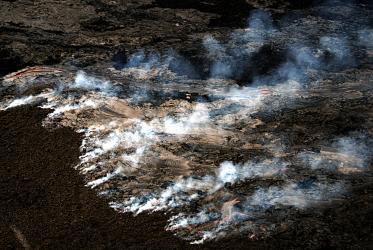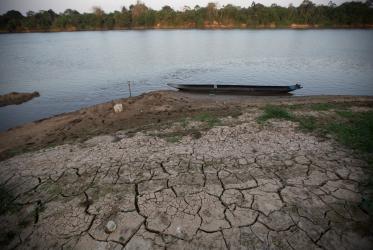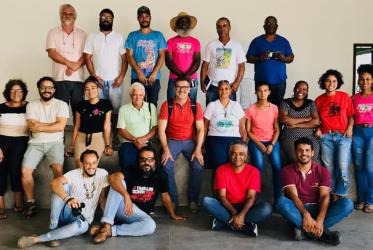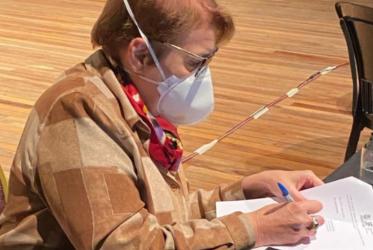Displaying 1 - 20 of 109
25 April 2024
WCC among “movers and doers” at UN Climate Ambition Summit
20 September 2023
Churches march in New York City to declare no faith in fossil fuels
18 September 2023
WCC offers condolences in wake of wildfires in Hawaii
16 August 2023
Brazilian ecumenical water network launched
29 July 2021
Pulling together for a living River Pardo
02 July 2021
Youth amplify #NoDAPL movement in Standing Rock
22 April 2021

